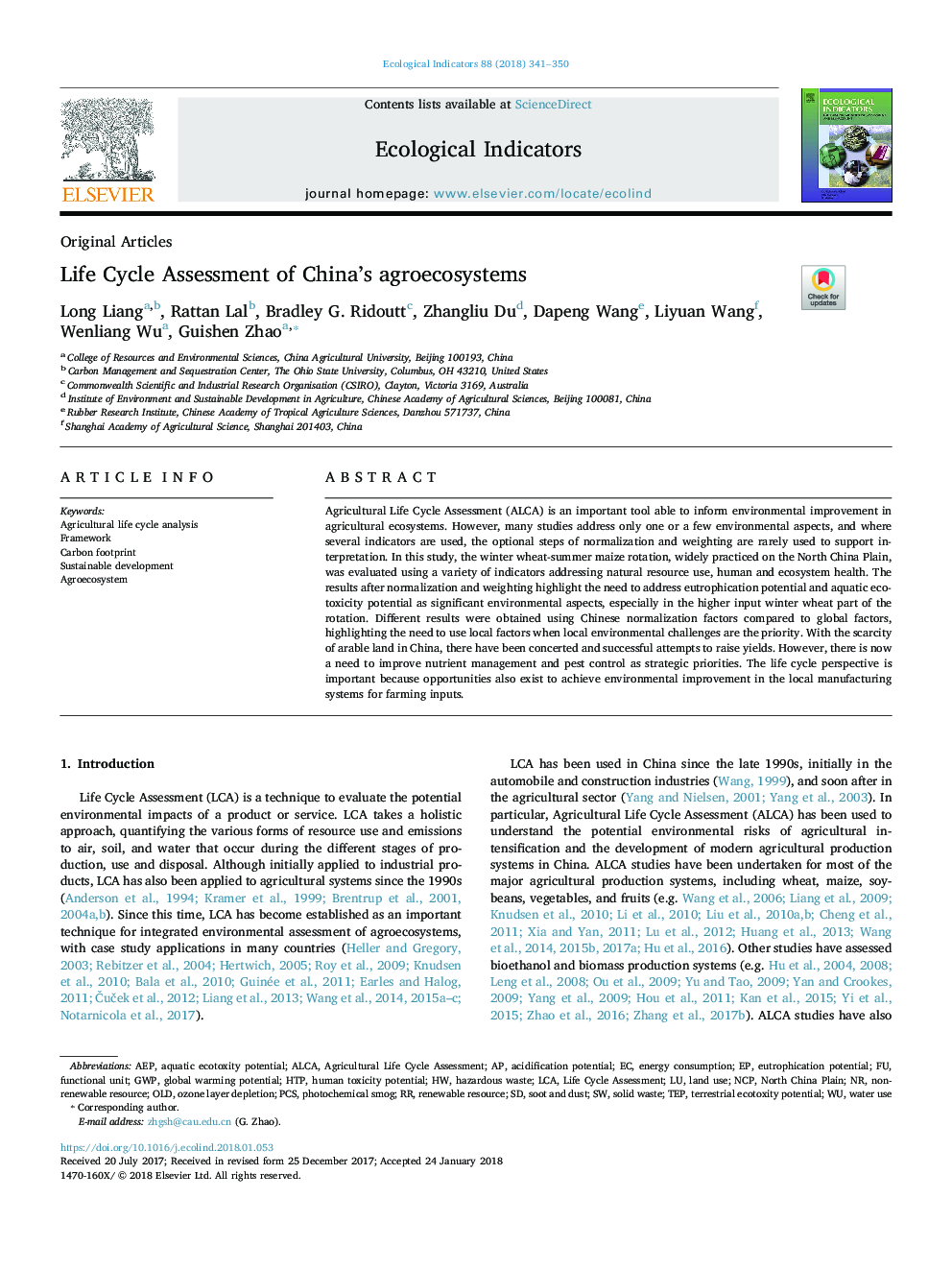| Article ID | Journal | Published Year | Pages | File Type |
|---|---|---|---|---|
| 8845612 | Ecological Indicators | 2018 | 10 Pages |
Abstract
Agricultural Life Cycle Assessment (ALCA) is an important tool able to inform environmental improvement in agricultural ecosystems. However, many studies address only one or a few environmental aspects, and where several indicators are used, the optional steps of normalization and weighting are rarely used to support interpretation. In this study, the winter wheat-summer maize rotation, widely practiced on the North China Plain, was evaluated using a variety of indicators addressing natural resource use, human and ecosystem health. The results after normalization and weighting highlight the need to address eutrophication potential and aquatic eco-toxicity potential as significant environmental aspects, especially in the higher input winter wheat part of the rotation. Different results were obtained using Chinese normalization factors compared to global factors, highlighting the need to use local factors when local environmental challenges are the priority. With the scarcity of arable land in China, there have been concerted and successful attempts to raise yields. However, there is now a need to improve nutrient management and pest control as strategic priorities. The life cycle perspective is important because opportunities also exist to achieve environmental improvement in the local manufacturing systems for farming inputs.
Keywords
OLDTEPHTPNCPALCAGWPAgroecosystemAEPLCALife Cycle AssessmentWater useLand useOzone layer depletionSustainable developmentNorth China PlainPCsCarbon footprintHazardous wasteEnergy consumptionNon-renewable resourceRenewable resourcePhotochemical smogSolid wastefunctional unitAcidification Potentialhuman toxicity potentialglobal warming potentialEutrophication potentialFramework
Related Topics
Life Sciences
Agricultural and Biological Sciences
Ecology, Evolution, Behavior and Systematics
Authors
Long Liang, Rattan Lal, Bradley G. Ridoutt, Zhangliu Du, Dapeng Wang, Liyuan Wang, Wenliang Wu, Guishen Zhao,
